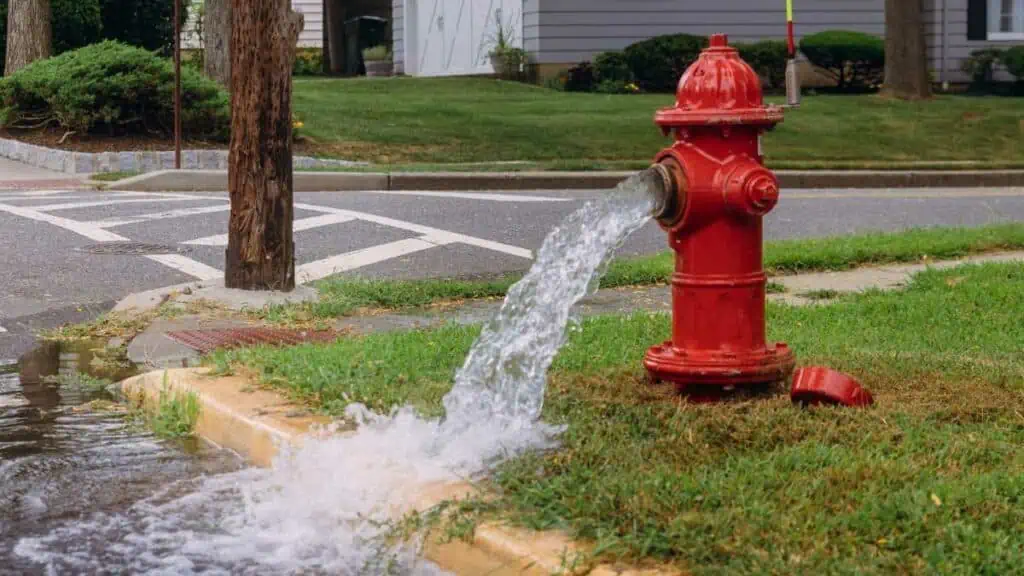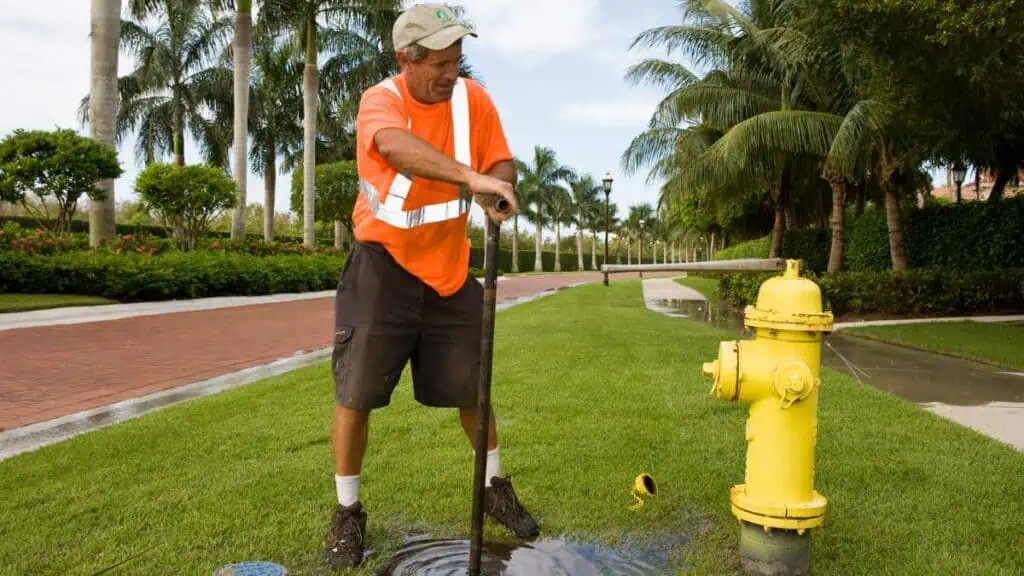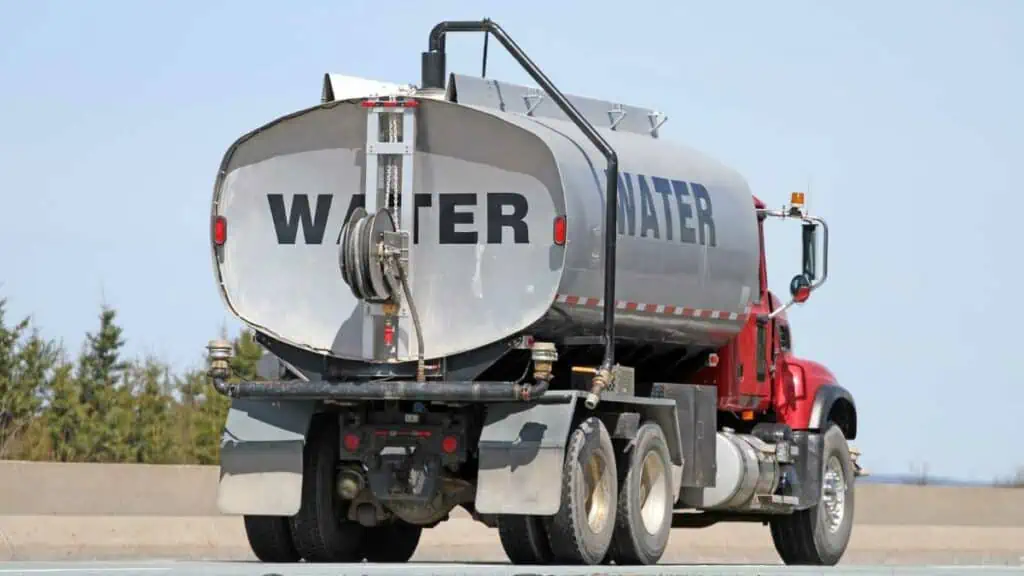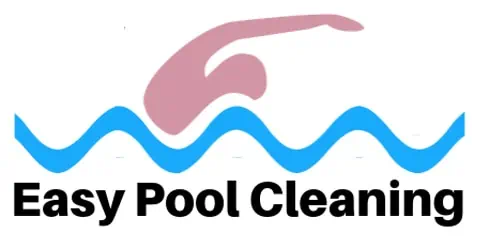Filling a swimming pool can be a time-consuming and expensive process, often leading pool owners to seek alternative methods to save time and money. One such option that comes to mind is using a fire hydrant to fill the pool with water. But can I use a fire hydrant to fill my pool, or is this just wishful thinking?
In some cases, it is possible to access hydrant water for pool filling purposes – that is assuming there is a conveniently located hydrant to your pool. However, the process varies tremendously depending on your location and local regulations.
Let’s dive into the steps and conditions involved in obtaining free hydrant water for your pool.

Can You Get Free Hydrant Water for Your Pool?
While it might seem convenient to use a fire hydrant to fill your pool, it isn’t necessarily the best solution.
Fire hydrants are designed to provide water in emergency situations, such as to extinguish fires. Using them for non-emergency purposes could lead to negative consequences, including possible fines or damage from unregulated water pressure.
Depending on your location and local fire department, you might still be able to use hydrant water for your pool with proper permissions. Some fire departments may offer the service for a fee, further proving that free hydrant water is quite rare. It is essential to check with your local fire department for detailed information and available options.
If you’re lucky, you may come across a city that allows filling pools from a fire hydrant. The costs can vary wildly from just $20 to much higher if your city charges by water volume. Ensure you follow the proper procedures and guidelines if using a hydrant is permissible in your area.
Safety and Quality Concerns
Water Quality
Using hydrant water for your pool may raise concerns about water quality. The water from fire hydrants might not be as sanitary or chemically balanced as the water you would typically use to fill your pool. As a result, filling your pool with hydrant water may require additional treatment or maintenance to ensure a safe and enjoyable swimming environment.
Pools should ideally be drained, cleaned, and refilled every 2-3 years (although that isn’t always the case if your water quality is well maintained). However, if you’re using hydrant water, keep a close eye on water quality and be prepared to address any issues that might arise.
Potential Hazards
There are potential hazards involved when using hydrant water for your pool, particularly when handling high-pressure water pumps. Fire trucks utilize pumps that generate water at exceptionally high pressures, which may cause damage to your pool if not managed carefully.
Moreover, accessing hydrants without proper authorization or using them improperly could lead to legal consequences. To avoid any issues, it is essential to check with your local water company, acquire the necessary permits, and use the hydrant safely and responsibly.
Legal and Permit Requirements

When considering filling your pool with hydrant water, it’s crucial to understand and adhere to specific legal and permit requirements. This section guides you through local regulations, permits, and fees associated with using hydrant water for your pool.
Local Regulations
It’s essential to check with your local water company regarding their policies on using hydrants for filling pools. Some areas may not allow it, while others have specific rules and requirements in place. For example, you might need a letter from the fire department in some cities. It’s important to comply with local regulations to avoid facing penalties or fines.
Permits and Fees
Before using hydrant water for your pool, confirm if you need a permit by contacting your city’s water department. In most cases, a hydrant permit and meter are necessary to use the water legally. These permits typically require payment in advance, based on the duration of use or the amount of water needed.
Here are the general steps to obtain a hydrant permit:
- Contact your local water company to inquire about hydrant use for pools.
- Find out if a permit is needed and obtain the necessary forms.
- Pay any required fees or deposits for the permit and meter.
Keep in mind that fees and permit requirements may vary depending on your location. Be sure to follow the proper steps outlined by your city or water company to ensure compliance with all legal requirements.
Hiring a Professional Water Hauler

If you’re unable to get free hydrant water for your pool, hiring a professional water hauler is another option to consider. These companies specialize in delivering bulk water for commercial and residential uses, including pool filling.
Typically, water haulers have trucks equipped with large tanks that can carry up to 8,000 gallons of water or more. These trucks generally have the capacity to fill a standard pool within a couple of hours. However, it’s essential to make sure that the water provided by the hauler meets safety standards and is suitable for filling a swimming pool.
This is the option I use to fill my pool as it is generally no more expensive than using a garden hose (and much, much quicker).
When hiring a water hauler, ensure that they are well-equipped and experienced in handling water deliveries for pools. Some factors to consider when selecting a water hauler include:
- Reputation
- Experience
- Delivery capacity
- Quality of water provided
- Pricing
It’s always a good idea to contact several local water delivery companies, assuming there is more than one in your area, to request quotes before making a decision. Comparing quotes from different providers will help you find a suitable water hauler that meets your needs and budget.
H2ecowater can arrange pool water delivery in all states (not an affiliate link).
Alternative Water Sources
In addition to hydrant water, there are other alternative water sources that can be considered for filling a pool:
Well Water
Well water is a viable option for filling your pool if you have access to a well. This can be a cost-effective method, especially if you already have a well on your property. However, it’s important to ensure the water quality meets the necessary standards for swimming.
Additionally, filling your pool with well water may deplete the groundwater supply, so it should be done responsibly.
Recycled Water
Recycled water, such as reclaimed wastewater, is another option for filling your pool. According to the Department of Energy, reclaimed wastewater is an alternative water source that can be used to offset the use of fresh surface water and groundwater.
The use of recycled water can be eco-friendly and help reduce pressure on local water resources. However, it’s crucial to ensure proper treatment and disinfection procedures are followed to guarantee the water’s safety for swimming.
Other alternative water sources like rainwater and greywater can also be considered, but they may require additional treatment and filtering before being used in a pool.
Conclusion
In summary, it is possible to obtain free hydrant water for your pool, depending on your local water company’s policies. You may need to acquire a permit and follow certain guidelines to do so. Checking with your local water company is crucial, as each company may have different regulations and requirements.
Keep in mind, the water from a fire hydrant might contain sediment, which could potentially cause problems for your pool filtration system. It’s essential to evaluate all potential issues before opting for this method of filling your pool.
Alternatively, you can consider pool water delivery services or contacting your local fire department to inquire about fire hydrant usage. No matter which method you choose, always prioritize safety and follow local regulations.






Leave a Reply